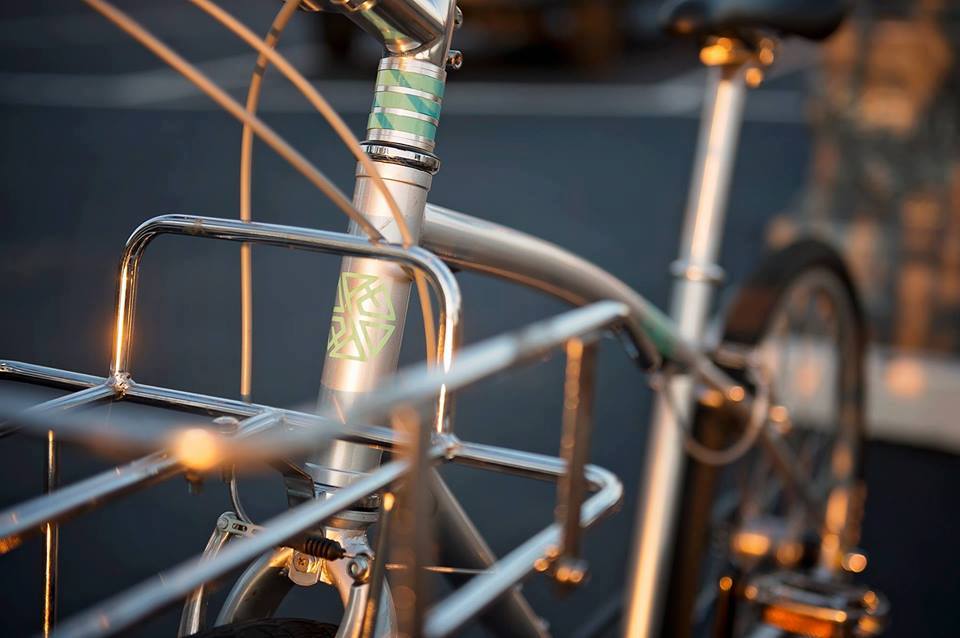A Cincinnati native hosted an Indiegogo, a website similar to Kickstarter, launch party this past Thursday at Rhinegeist Brewery for a company called Bikes of Reckless Optimism (Bikes ORO).
While the main objective of the company is to foster healthier and more eco-friendly lifestyles for everyone, Chelsea Koglmeier, the company’s founder, also hopes to create easier transportation for children in developing countries.
Koglmeier, a former employee at the Over-the-Rhine-based tech start-up Roadtrippers, said that she took a trip to Kampala, Uganda about a year ago and realized that most of the children in refugee camps there had to walk 8 to 10 kilometers (5 to 6 miles) just to get to school every day.
“Sending a seven-year-old out to do that twice in a day is a lot, and having access to a bicycle makes it a lot more reasonable for their families to let their kids go,” Koglmeier said.
In a business model akin to Toms Shoes, Bikes ORO benefits people in need around the world by using the revenues from bikes sold to help provide bikes to those individuals.
With the help of Perth-based design firm Flying Machine, each bike has its own unique design, with manufacturing taking place in Tianjin, China where two prototypes for the bikes have features like Gates Belt Drives instead of chains, three speeds, and an internally geared hub.
Koglmeier says the purpose of what she calls a “lifestyle business” is not to make lots of money or have a massive impact on those in developing countries. Rather, she hopes that by getting more people on bikes, instead of in cars, will help create better communities.
“I’m much more likely to waive at someone on the street than I am to waive at them when I’m in a car,” Koglmeier explained to UrbanCincy. “That means a lot for cities, and I think Over-the-Rhine is a great example of it. It’s powerful.”
After launching the crowdfunding campaign a week ago, Bikes ORO has already raised more than $20,000, with a goal of raising a total of $45,000 by the end of March. Helping the fundraising effort is the fact that the company has already produced several bikes that people can see and test.
“Because she has an actual, physical product, it’s not like people are giving money to invest in a company that will at some point do something,” said Tatiana Parent, a friend and colleague of Koglmeier. “Some of that money is people actually buying bikes, so it makes it a bit different than a typical Indiegogo campaign.”
At the Rhinegeist event, aptly named Bikes and Brews, people were donating money and took a look at some of the bikes.
“It’s great to see Chelsea with a big turn-out like this,” said Mike Morgan, from Covington. “She seems to have a pretty spiffy product and I kind of wish that they were already selling the bikes because I need a new commuter.”
The company launch has already grown beyond the Cincinnati market, with four other parties in three other cities pending.
The growth is something that is telling of both Bikes ORO’s product, but also the founder’s vision for healthier and more engaged communities.
“It encourages us to think about our world and how we’re taking care of it,” Koglmeier concluded. “It also, especially in city situations, creates this sort of community that you don’t get otherwise.”
Those interested in contributing to the campaign can do so by making a pledge through Bikes ORO’s Indiegogo campaign page.
